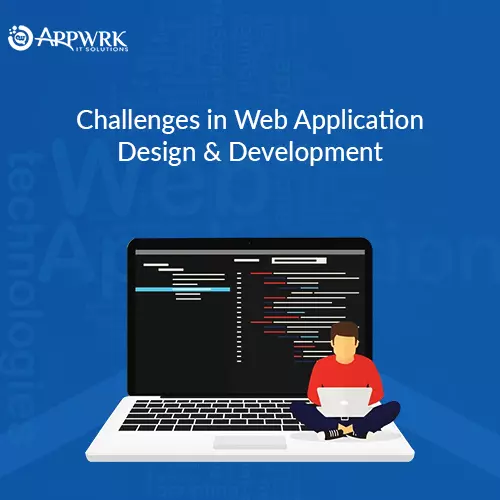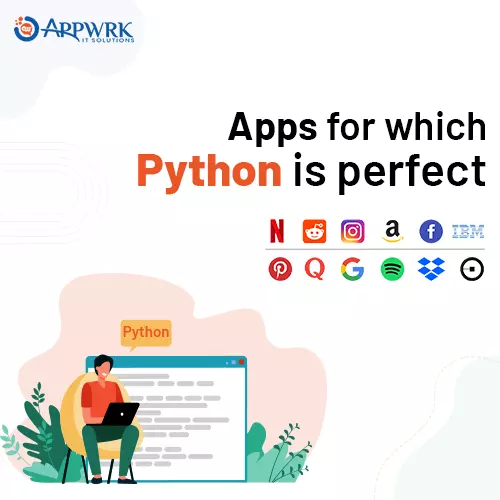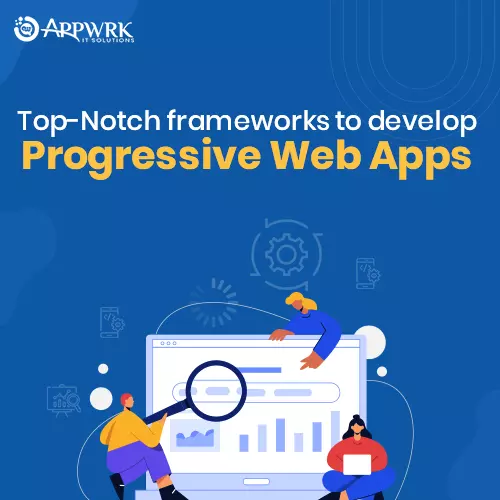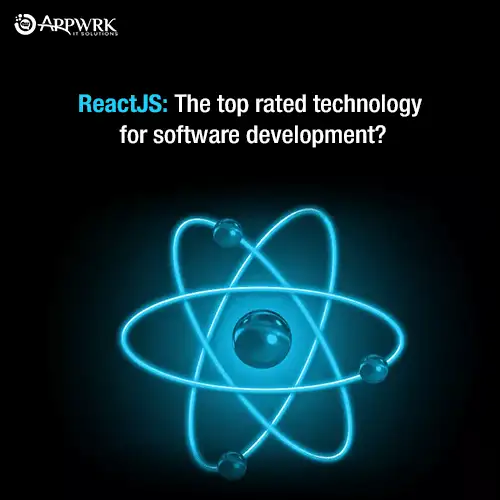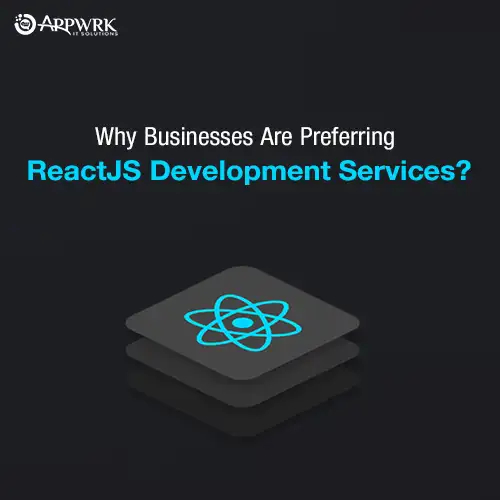Django vs. Node.js: Which One is Best For Your Next Project?
Are you also one of those who need clarification on Django vs. Node.js, which is the most powerful technology to build a functionality-rich and versatile web application with an interactive user interface? In this blog, we have made a detailed comparison of node vs django, the two popular frameworks used for building web applications, so keep reading to find out which is the best!
Django vs. Node.js both have an excellent user interface and are open-source, meaning anyone can use them without a paid license. That’s why they are used in various significant projects and have a vast web community. Check out the number of websites developed using Django and Node.js across the globe, which will prove how loved these technologies are.
When comparing django vs node js, we can see from the image above that both of them are commonly adopted across various countries. Since both these languages have unique features and functionality, most business owners find themselves in a dilemma when having to choose the right one
Django or Node.js???
Django vs node has always been a common debate among developers when it comes to choosing the best framework for building applications as both provide a wealth of benefits. Django allows Python usage in both the front and back end to build applications in real time and more quickly. Node.js, based on JavaScript, is mainly employed for front-end (client-side of web applications). It is a JS runtime for the OS used to develop the web servers. In that case, reading about Node.js vs. Python will be interesting.
However, to choose the best out of Django and Node.js, one must be aware of their features, usability, pros, and cons.
Let’s start our journey of Django vs. Node.js.
Table of contents
Django vs. Node.js: Introduction
What is Django?
In order to properly compare node js vs django, you need to first know about these frameworks in detail and understand their unique features and differences. Below let’s look in detail about what is django and node.js, their key features, top reasons to choose them as well as popular case studies that highlight their usage.
Django is primarily a Back End framework and cannot be individually used to develop full-stack web applications. It was developed in 2005 by the Django software foundation and designed by Adrian Holovaty and Simon Willison. Django mainly follows Model Template View (MTV) design pattern, which is similar to the MVC framework except for the template.
This technology works on the rapid development principle, therefore, takes applications from concept to completion very fast. Django allows developers to do multiple iterations simultaneously instead of starting the entire program right from the beginning. Additionally, it enables developers to use existing code, thus easing their work.
Although it is mainly used for back-end development, with HTML/CSS/Javascript, you can also use it to build a full-stack web app at the front end.
Key features of Django
- Django simplifies computer syntax into a language that the user can easily understand.
- This framework is functional and object-oriented, which means it can model real-world data and focus on functions.
- It mainly focuses on high-level processes and abstracts low-level functions.
- As it supports the popular “Python” language, we can build highly scalable and fast applications using Django.
- In Django, you don’t have to write different codes for different machines as it is highly flexible and portable.
Top reasons to choose Django

- This technology allows rapid development.
- It has a dedicated community of developers and comes with excellent documentation, which makes it easy to learn.
- Its syntax is elegant and easy to maintain and understand.
- It follows an MTV (Model-Template-View) pattern. However, this model can be restricted but allows better scalability and organization.
Installation of Django
Installation in Django is effortless. It can be done using Python’s package management tool (pip). The below-given command is needed from the terminal for both Linux and Windows operating systems, provided pip is installed.
To confirm the installation, activate the Python shell and import Django. Type in ‘python’ on the terminal.
Now import Django using,
If there are no errors, then everything is working fine!
Case study of companies using Django
We have covered the case study of a few top leading companies.
- YouTube
Initially developed on PHP, later turned to Django and saw an improvement in performance and scalability and added new features efficiently.
This social media platform swank one of the largest deployments in the world. The Instagram developers were fascinated with the simplicity of Python and found coding easier with Django.
- Bitbucket
Since Bitbucket started in May 2008, it has always been a Django shop. Bitbucket officially launched one month later, proving how fast you can move using this framework.
- Spotify
This world’s most famous streaming service noticed an increase in its speed by using Django.
- The Washington Post
This company loves Django for its capacity to deal with high-volume web traffic.
What is Node.js

Node.js is a popular open-source, cross-platform JavaScript runtime environment built on Chrome’s V8 JavaScript engine. Node.js was designed in 2009 by Ryan Dahl, and Joyent sponsored its development. It is written in Javascript, C, and C++. Node.js can create frontend and backend parts of a web application using only one programming language, JavaScript.
Node.js enables developers to utilize JavaScript by using command-line tools entirely. Additionally, it allows Node.js developers to write commonly on both the server and client sides. JS engines like Google’s V8 run code on the servers to execute JavaScript code on the back end or server side.
This runtime environment is perfect for creating scalable network applications using an event-driven I/O model. Due to this model, Node.js is a quick and light resource for web application development.
Key features of Node.js
- This technology is beneficial for web application prototypes and agile software development.
- Node.js is considered one of the best back-ends for react. It means the entire development process can be done using JavaScript only; as we know, React is also a JavaScript library.
- If you have prior knowledge of JavaScript, then Node.js is very easy to use and learn.
- Object-oriented programming in Node.js allows efficient data flows between components in large applications.
- Node.js can greatly support developers through community tutorials, resources, and shared codes.
Top reasons to choose Node.js
- It is known for its fast performance.
- This framework comes with npm, an online repository of open-source Node.js projects that can be installed with a single command.
- It enables developers to use JavaScript on the web application’s server side.
- It comes with excellent community support.
Installation of Node.js
This runtime environment can be easily installed on Windows using the Windows Installer. You need to follow some simple steps after downloading the installer from the official website-https://nodejs.org.
Installation is confirmed from the Windows command prompt with-
And for Linux users, Node.js can be installed from the terminal with-
Installation can be confirmed on Linux (Ubuntu) on the terminal with-
The npm (Node Package Manager) is used to install the packages that can be used with Node.js.
Case study of companies using Node.js
We have covered the case study of top companies using Node.js.
- NASA
This company was attracted by the ease of building data transfer applications using Node.js. It is also satisfied with the productivity gains offered by front and back-end teams working on this technology.
- PayPal
This payment giant selected Node.js so that all developers can use a single language. Paypal developers noticed that by using Node.js, the application got developed in half time compared to past projects. According to them, there is a 33% reduction in the lines of code.
- Uber
This company chooses Node.js over other frameworks because it’s quick to deploy and can process vast amounts of data quickly and reliably.
- eBay
Even one of the biggest auction sites (eBay) fell in love with Node.js in 2016. Their developers were astonished by the scalability benefits and ease of real-time monitoring offered by this runtime environment.
Django vs. Node.js: Head-to-Head Comparison

1. Popularity
When comparing the django vs node.js’ popularity, Node.js is undoubtedly more popular with a widespread implementation across different projects. Check out the below stats and graphs and judge the popularity of Django and Node.js.
- According to SimilarTech:
Top Websites Using Django
Top Websites using Node.js
- According to Google Trends:

Check out the popularity of Django vs. Node.js across the globe on Google Trends.

2. Architecture
Django

Django uses Model View Template architecture (MVT). This design pattern is similar to Model View Controller (MVC). It divides your code into three separate functions:
- Model- A code for dividing application components.
- View- A principle that manages how users see and interact with your app.
- Controller- A code that controls the connection between the Model and the View.
The best part of this architecture is that developers can work with various aspects of a single project while developing the app. Moreover, changes in a particular component do not affect the entire application.
Node.js

Node.js works on a single thread, event-driven model in which the entire architecture is driven by messages from other programs and “events,” or user choices. This single-thread event loop architecture runs on an operating system for maintenance requests and helps to develop high-end applications. Due to this model, the applications developed in Node.js are robust. Additionally, the non-blocking input/output and asynchronous request handling architecture of Node.js let you manage multiple requests simultaneously.
Verdict:– There is no clear winner of Django vs. Node.js in terms of architecture. You can consider this criterion after looking into other points of comparison.
3. Ease of Learning
Now, let’s compare django vs nodejs based on the ease of learning of these languages. Whether you choose Django or Node.js for your project, it is important to understand the key difference between the two: Django is a Python-based framework, while Node.js is built on JavaScript. Hence, in order to learn either node or django, you need to first get accustomed to their primary programming language.
Django
To start with Django, it is required to have a complete understanding of the MTV (Model Template View) architecture. Although there are tons of good tutorials for Django, most need to be updated and teach the old way of doing things.
Node.js
To start with Node.js, you need an understanding of asynchronous programming Node’s native methods and architecture. Like Django, many tutorials for Node.js are available on the web, but none teaches the basics.
Verdict:- Out of Django vs. Node.js, Node.js presents some complex concepts that make this framework quite tricky for newbies to start soon.
4. Performance
Performance directly depends on the speed of web development. The higher the speed higher will be the performance. Out of Django vs. Node.js, let’s see which technology provides higher performance.
Django
Django’s performance is higher due to its multithread and unique features like caching and database optimization. This framework also has a built-in house template system that makes the execution of tasks quicker and offers better performance.
Node.js
This technology comes with various resources that make the application development process much faster. As it works on single-thread, we know more threads help you get the task done more quickly. Hence Node.js, compared to Django, lacks in performance. However, it uses the Google V8 engine to process the request, which enhances the development process.
Verdict:- Django is the winner.
5. Scalability
Scalability refers to the future scope to add features and functionality to your application or build a platform that could handle massive traffic.
Django
Django develops each function autonomously and then makes connections between them, making it easier to implement and refine new features without considering how to integrate them with the app. Also, in this framework, programming language runs across multiple threads. Also, it has an MVT model with numerous tools that help create more extensive applications and handle heavy traffic and substantial amounts of data.
Node.js
Node.js can either spawn more processes or add more RAM to handle concurrent requests by the event loop. The powerful tools of Node.js, like Cluster and PM2 process manager, make it relatively easy to optimize web applications.
Verdict:- Django vs. Node.js are good at scaling your application, provided devs know how to develop stable and secure code and optimize it.
6. Flexibility
Now, let’s dive into evaluating nodejs vs django based on their flexibility in creating applications. Since both of these frameworks are designed differently, their levels of flexibility also vary significantly and by understanding their differences, you can determine which framework better suits better for your specific project needs.
Django
Although Django tends to lower the workload while developing an application, it consists of a limited range of development features that result in less flexibility. Due to less flexibility, there is less scope to create highly customized apps in Django.
Node.js
This JavaScript-based runtime environment offers a vast library of features and tools. Hence you have the freedom to build applications from scratch. Because this gives you control of how your web application is developed, and you are free to add tons of desired features and functionality, Node.js gives you high flexibility.
Verdict:- Node.js is a clear winner.
7. Security
With security threats constantly increasing, it is important to ensure high protection when selecting frameworks for building applications. Whether you are going to use node js or django for building your application, you should know that while they both offer strong security features, there are a few key differences in their security mechanisms.
Django
This framework is strict about its security functions. Django built-in security tools such as SQL injection protection and clickjacking prevention prevent significant security breaks. Besides this, Django offers various features that protect SSL or HTTPS, host header, XSS, SQL injection, CSRF, etc.
Node.js
If we consider Django vs. Node.js, Node.js offers no default security setting. But if you want to add security measures to the application, you must manually manage security flaws. This step is crucial; otherwise, default session cookie names used by the runtime environment could make it vulnerable and expose your application to the attacks such as cross-site scripting (XSS), SQL injection, cross-site request (CSRF), etc.
Verdict:- Django is the winner.
8. Templates & Documentation
Django
When comparing nodejs vs django, the latter uses a built-in template system which is helpful for new developers as the development process gets sped up due to the availability of ready-made templates. Hence anyone with an understanding of HTML can work on Django without learning Python language. Moreover, straightforward documentation is the most significant helping hand to start with this framework.
Node.js
This runtime environment is preferred mainly by experienced and creative developers who want to develop highly customized applications. But a newbie developer has to spend a lot of time researching implementation modules and testing the application.
Verdict:- Django is the winner.
9. Development Speed
Django
Django is based on Python, the most straightforward programming language, thus resulting in a rapid time-to-market. Also, Django offers a vast number of pre-built modules for different functions, and therefore development process gets sped up because there is no need to code for everything from scratch.
Node.js
However, you can save time integrating Node.js with your front-end as you have to work with only one coding language, but still, when comparing Django vs. Node.js, this framework needs to catch up.
Verdict:- If you want to know which is better node js or django for developing an application quickly, then the answer will be Django because of its straightforward programming ability and pre-built models.
10. Cost Efficiency
Django
This framework is so deadline-oriented that it allows developers to develop competent applications readily, making them less costly.
Node.js
Regarding Django vs. Node.js, Node.js is based on JavaScript; hence, it takes more time to develop and is less cost-efficient.
Verdict:- Django is more cost-efficient.
11. Community
Django
Although the Python community is terrific, there is a utility package for almost everything you think of. But this is not the case with Django; it has a relatively less active community.
Node.js
Node.js has a strong developer community. The community offers regular updates, and you can get many free tools from other developers on GitHub.
Verdict:- This time, Node.js is the winner
12. Full-stack Development
Full-stack development means a combination of both front-end and back-end development. Both Django and Node.js can be used for full-stack development. Node.js using JavaScript and Django using Python can create the front-end and back-end of any application.
Verdict:- If you want to compare django vs node js with benchmarks in development languages and find out which is best for full stack development, then both are highly capable of developing a fully functional application.
Django vs. Node.js: Pros and Cons
Django: Pros & Cons

Pros
- Django is an easy-to-learn and easy-to-implement framework.
- Security risk is less due to its built-in security system.
- Rapid development due to built-in templates.
- It is designed to implement high-level processes.
- Extensive documentation and template structures make development more efficient.
Cons
- It only works well in small apps because it needs a lot of coding and takes a lot of time to process bandwidth.
- This framework cannot handle multiple requests for individual processes at once.
- A complete understanding of this framework is required for newbie developers.
Node.js: Pros & Cons

Pros
- Applications developed with this runtime environment quickly scale in horizontal and vertical directions.
- Node.js is a vast global community where millions of developers contribute to solving peculiar development errors.
- It comes along with an excellent package manager.
- Node.js handles concurrent requests easily.
- This runtime environment comprises a more accessible system with less complicated features.
Cons
- It is less cost-effective, as it takes more time to develop applications.
- Due to its single thread, it could be better with CPU-intensive apps.
- Its non-coordinated programming makes it hard for developers.
Conclusion: Which One to Choose from, Django vs. Node.js?
After a great discussion between Django and Node.js, it’s time for a final call!
Whether you want to use django or node js in your next project, it is important to understand that they both come with a distinct set of advantages and disadvantages. There is no specific answer to the question- “Which is better for your project?”. Everything depends solely on your project needs and the specific requirement of the developer. Each application has particular needs, and every developer has their development style. Some may go with Django, while others may choose Node.js.
But we have concluded a few points that will help you choose Django vs. Node.js.
When Django is the best option?
- Django’s code-light approach is perfect if you want to build your app very quickly.
- If you’re looking for watertight security in the code structure itself.
- You might integrate any new technologies like machine learning at some point in the future.
Ready to Hire a Django Developer, Contact APPWRK!
When Node.js is the best option?
- If you prioritize creativity and flexibility over speed in the development process.
- If you’re looking for high-speed performance and your app isn’t CPU heavy.
- If your front end is written in JavaScript and you desire productivity and cost gains from everyone working off the same language.
Ready to Hire a Node JS Developer, Contact APPWRK!
Although this blog will help you choose the best technology for your next project, if you have any further queries, feel free to connect with APPWRK.
Frequently Asked Questions (FAQs)
Q: Django vs node.js: Which is the best backend framework?
A: Both django and node.js are great backend frameworks that offer a number of features. While django has features like lazy loading, caching, and connection pooling, that can enhance performance and scalability, node.js has a non-blocking I/O model that allows it to handle a large number of concurrent requests efficiently.
In addition to that, django supports the use of multiple databases which allows the distribution of data across multiple servers whereas Node.js does not provide built-in support for multiple databases but offers several third-party modules and libraries which can be used to connect to multiple databases.
Q: When comparing node js vs django, which framework is more scalable?
A: While both node and django offer scalability, node is comparatively more scalable due to its asynchronous architecture and is widely used to build microservices and handle various concurrent connections. Django, on the other hand, requires more effort to handle high traffic and is best for CPU-intensive workloads.
Q: Django vs node js: Which is better for building websites for small to mid-scale businesses?
A: When choosing between Django and Node.js for building websites for small to mid-scale businesses, it depends on the specific requirements of the project. Django is an ideal choice for rapid development and has many built-in features like authentication, an admin panel, and ORM for database management. On the other hand, Node.js is better for businesses that need to build high-performance and real-time applications with features like live chats.
Q: Django vs react: What is the difference between the two?
A: Django is a python web framework that is used for building the back-end of websites while React is a JavaScript library that can create UI components and build user interfaces. Both of these serve different purposes and can be used together for full-stack development.
Q: Python django vs javascript: Which programming language is easier for development?
A: Python along with django can be considered as the easier way to develop applications when compared to JavaScript as it has a simple and readable syntax while JavaScript’s asynchronous nature and complex framework can be difficult for beginners to work with. However, JavaScript is a great choice when building dynamic and versatile applications that need several integrations.
Q: When comparing django vs javascript, what is the difference between them?
A: Django is a backend framework built on Python and handles tasks like database management, authentication, and server-side logic. It offers a structured and secure environment for building web applications. On the other hand, JavaScript, is a programming language used for frontend development and can create dynamic and interactive user interfaces.
About The Author



































